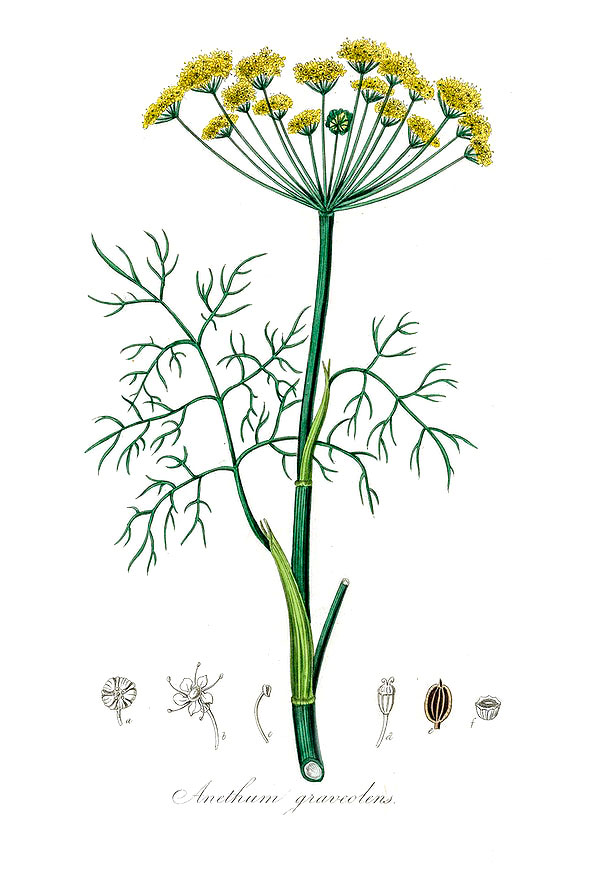Dill

Origin: Eurasia
Family: Apiaceae
Scientific Name: Anethum graveolens
Folk Names: Aneton, dill weed, dilly, garden dill
Magical
Element: Air
Day: Wednesday
Planet: Mercury
Zodiac: Gemini,
Virgo
Associated Celebrations: Floralia
Deities: Adonis, Bacchus, Dionysus, Kupala
Parts used: Leaf, seed
Magical Properties: Love, conscious mind, clarity, protection, money, purification
Lore
- Nicholas Culpeper notes that dill is an herb of Mercury, and this strengthens the brain. Among other uses, he attributes it (when boiled in wine, or tied in cloth and smelled) to being able to cure hiccups.
Magical Uses
- Place dill in a child’s cot to help protect them.
- Sprinkle dill around the bed to protect the sleeper.
- Place dill in the mouth to promote speaking the truth.
- Hang dried seed heads in the home for protection (ideally near the door).
Aromatherapy
Part Used: Seeds or herb
Extraction Method: Steam distillation
Flash Point: 60°C
Scent Type: Spicy
Perfume Note: Middle
Scent Description: Spicy, warm (seeds), sweet (herb)
Aromatherapeutic Uses
Can help with indigestion, colic, and nervous tension.
Warnings:
- Avoid during pregnancy.
Botanical
Type: Herb
Plant Height: 40-60cm
Stem: Slender, hollow
Leaves: Delicate, finely-divided leaves 10-20cm long
Flowers: Small white/yellow flowers in umbels 2-9cm across
Fruit: Slightly curved seeds 4-5mm long and 1mm across
Etymology: Anethum comes from the Ancient Greek anethum/anisum, which referred to both dill and anise. The name ‘dill’ or variants thereof are used in most Germanic languages.
In the Garden
Type: Annual
Sow: Early spring
Light: Partial shade
Water: Keep moist
Soil: Well-drained
Tips:
- Seedlings do not like being transplanted.
- Don’t plant near fennel, as they will cross-pollinate.
- Liquid feed will only promote soft growth (attracts pests and diseases).
- Dill will go to seed if it dries out too much - be sure to water regularly in summer.
- Plants are likely to require staking.
